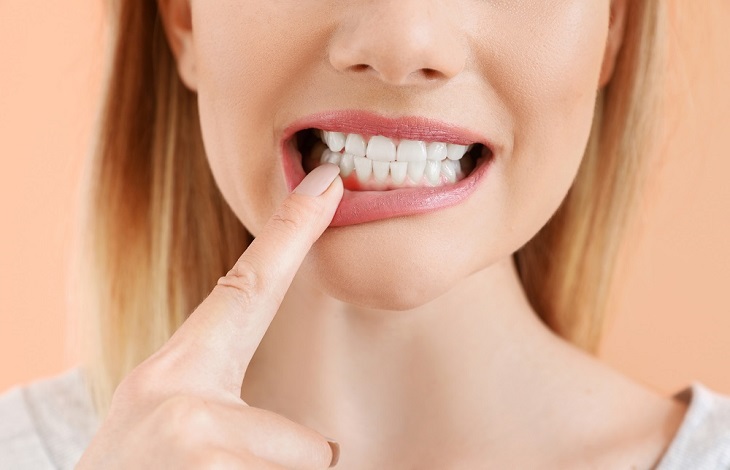Gum Disease: Causes, Symptoms, and Solutions
Gum disease is a common issue that typically leads to discomfort, pain, cavities, and ultimately loss of teeth. Let’s talk about what causes it, how you can identify it, and most importantly, what you can do to restore your oral health.
What causes gum disease?
The major cause of gum disease is bad oral hygiene. Plaque builds up in your mouth when you neglect to brush and floss your teeth. The bacteria in plaque will break down both your teeth and gums, leading to infections.
Other causes include:
- Smoking. More plaque builds up in your mouth when you smoke, accelerating gum diseases. Plus, smoke deprives your body of oxygen, taking longer for your gums to heal.
- Age. It’s more common for older people to suffer from gum disease because of the lower saliva production, which causes the mouth to dry out. There’s not enough saliva to wash away bacteria when the mouth is dry.
- Diabetes. This condition causes changes in blood vessels which result in lower blood flow and weak gums.
- Pregnancy. Hormonal changes during pregnancy result in the gums becoming more susceptible to plaque.
- Weaker immune systems. People with chronic conditions such as HIV/AIDS and those undergoing harsh treatments like chemotherapy are more prone to gum disease.
- Poor diet. When your diet doesn’t contain enough vitamins and minerals, you have a higher risk of gum disease.
Symptoms of Gum disease
Gum disease typically progresses in stages, starting as gingivitis and developing into a more severe form called periodontitis (if left untreated).
Early symptoms include:
- Swollen gums
- Wobbly teeth
- Bleeding gums when you floss or brush your teeth
More advanced symptoms for gum disease (periodontitis) include:
- Bad smelling breath
- Strange, unpleasant, and sometimes a metallic taste in the mouth
- Loose teeth
- Abscesses with pus on the gums which can develop into ulcers
- Excessive bleeding and pain in the gums
- Gum recession
- Excessive saliva in the mouth
- Visual gaps between teeth
Treatment for gum disease
Treatment for gum disease typically involves:
- A dentist will scrape away plaque and tartar using specialised equipment. The teeth will then be polished to remove stains. You may need to do this several times to prevent the build-up of plaque that affects the gums.
- Deep cleaning under your gums to remove all the bacteria from the roots of the teeth.
- In acute cases, you’ll need periodontal surgery and possible removal of affected teeth.
- The dentist will prescribe antibiotics to take care of abscesses and ulcers.
That said, the best treatment for gum disease is prevention. So, ensure you religiously practise good oral hygiene, including:
- Brushing your teeth twice a day for at least 2 minutes each time. It’s important to remember to brush before you go to bed to prevent the plaque from building up.
- Consider using an electric toothbrush as they are typically better at cleaning the teeth more thoroughly.
- Use fluoride-based toothpaste to protect the teeth
- Floss or use interdental brushes before you brush your teeth
- Avoid habits like smoking that reduce your oral health
- Eat a well-balanced diet and drink lots of water
- Visit your dentist at least twice a year
In conclusion
Take care of your teeth to prevent gum disease. If you suspect you have any of the symptoms outlined in this article, get in touch with your first choice, Maroubra dentist, to get treated before the problem worsens.
Read Also:

